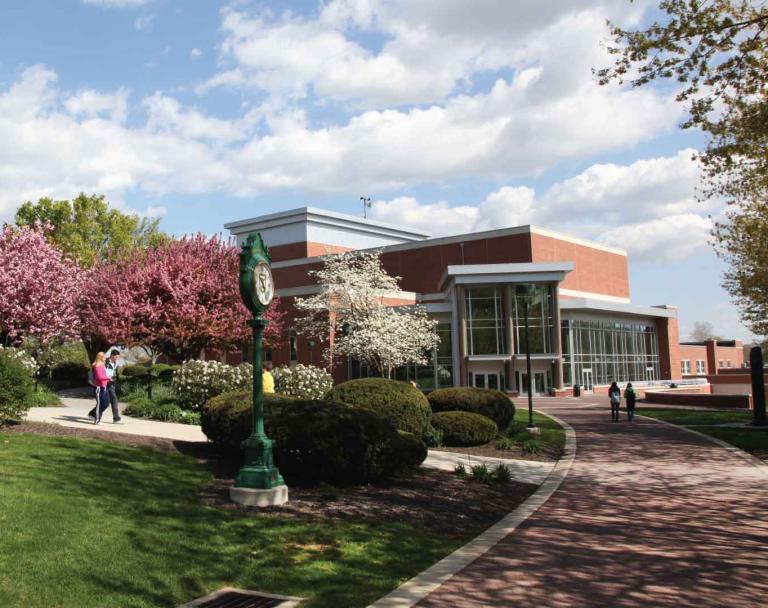Small World Initiative Project

- Academics
- Kinsley School of Engineering, Sciences and Technology
- Spotlights
- Small World Initiative Project
York College Science Students Hope to Make a Difference in Small World Initiative Project
The innovative program encourages students to pursue careers in science while addressing a worldwide health threat—superbugs and the diminishing supply of effective antibiotics.
McKenna Seashole ’25 wondered what kind of bacteria she might be living next to on the York College of Pennsylvania campus. So, she stepped outside her dorm and collected a sample of dirt.
For the Biology/Pre-Med student, that sample held so much potential. It was the start to what she hopes is an experiment in finding new options for antibiotics—a topic that could largely influence her career and the world of medicine.
Seashole and other first-year science students are part of The Small World Initiative, a global research team that is searching for antibiotic-producing microbes in soil. The innovative program encourages students to pursue careers in science while addressing a worldwide health threat: superbugs and the diminishing supply of effective antibiotics.
“It’s not uncommon for a lot of colleges to have first-year students in cookie-cutter labs, where the students and the professor know the outcome of that work,” Seashole says. “This project isn’t like that.”
A chance to make a difference
Three York College faculty members applied for and have been trained to participate in this original research program: Associate Professor of Biology Wendy Boehmler; Instructor of Biology Anthony Botyrius; and Associate Professor of Biology Meda Higa.
Starting this semester, Boehmler and her colleagues are participating in the research program with first-year students in Biology, Environmental Science, and Environmental Horticulture. Because most antibiotics come from soil microbes, students begin their hunt for novel antibiotic-producing soil bacteria by heading outdoors to collect a soil sample.
Then, they isolate the diverse array of bacteria in the lab and test them for antibiotic activity against known human pathogens. Those displaying antimicrobial properties will be analyzed further by a series of genetic and biochemical tests to identify the isolate. The ultimate goal is to chemically extract the antibiotic and further test it.
“We pride ourselves in including all students in our research endeavors—it is part and parcel to our program,” Boehmler says. “However, this opportunity is usually reserved for third- and fourth-year students. The Small World Initiative project allows first semester students to be a part of scientific discovery from the very start of their academic careers at YCP. It is my hope that it reinforces their passion for STEM, which in turn can lead to better retention of our future scientists.”
An exciting start
Kendra Winkleblech ’25 was excited to jump on this initiative within the first week of classes at York College. She collected her sample near a water source, where there is often more diversity in microbes.
“I’m just interested to see if we could find a new antibiotic and if our class could really do something that makes a difference,” she says. “It’s already taught me to be more open to things, to learn how to work together with a team, and to know that failure is part of the process.”

